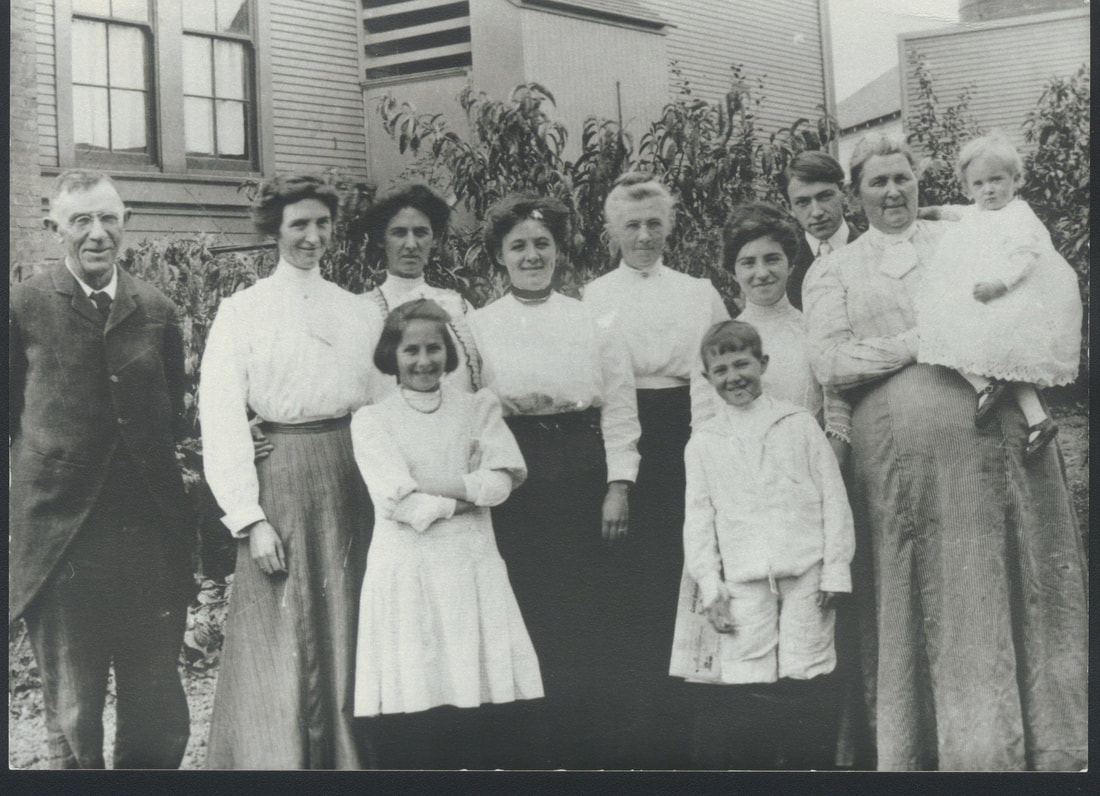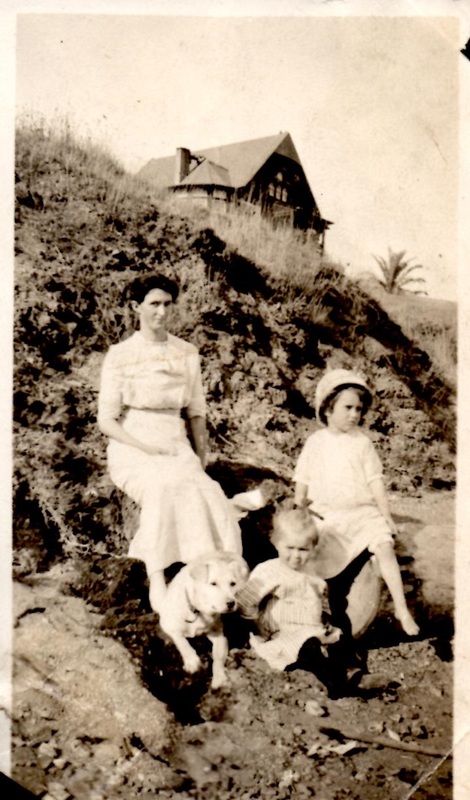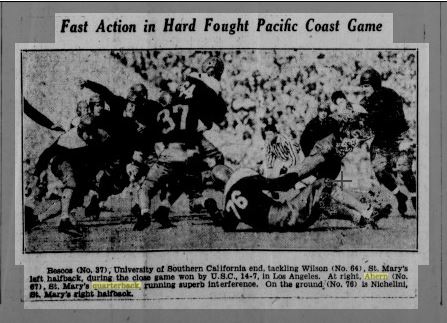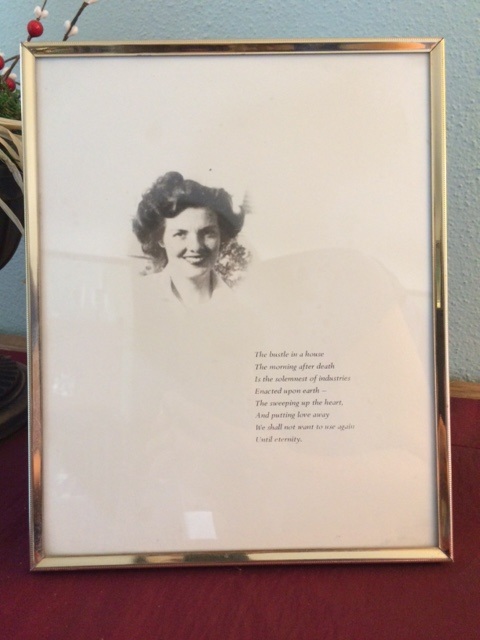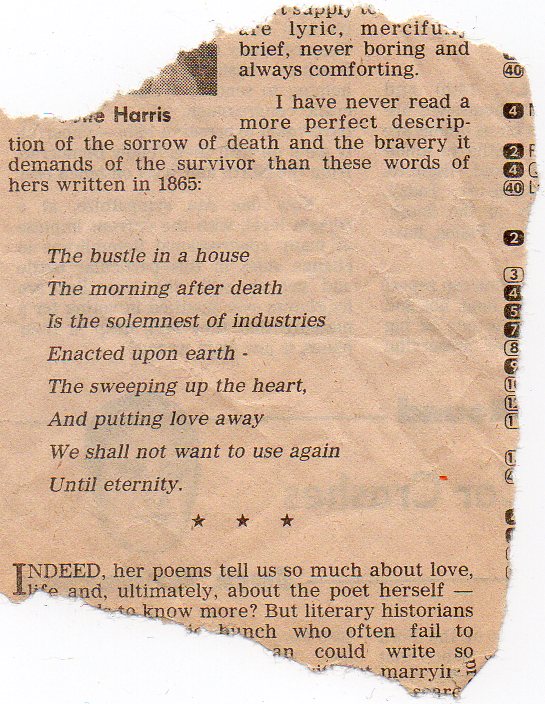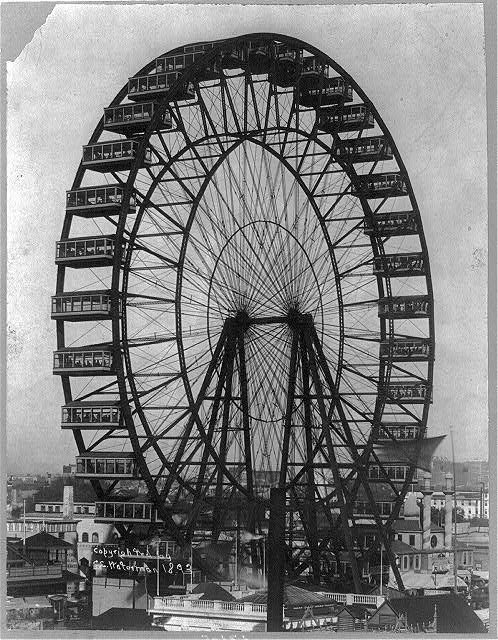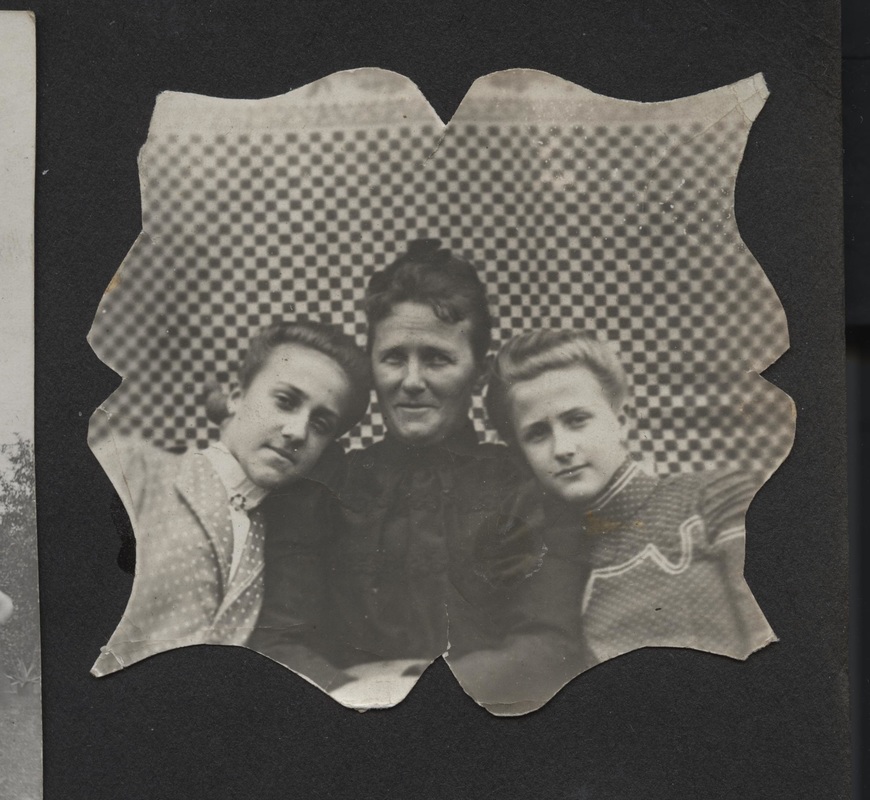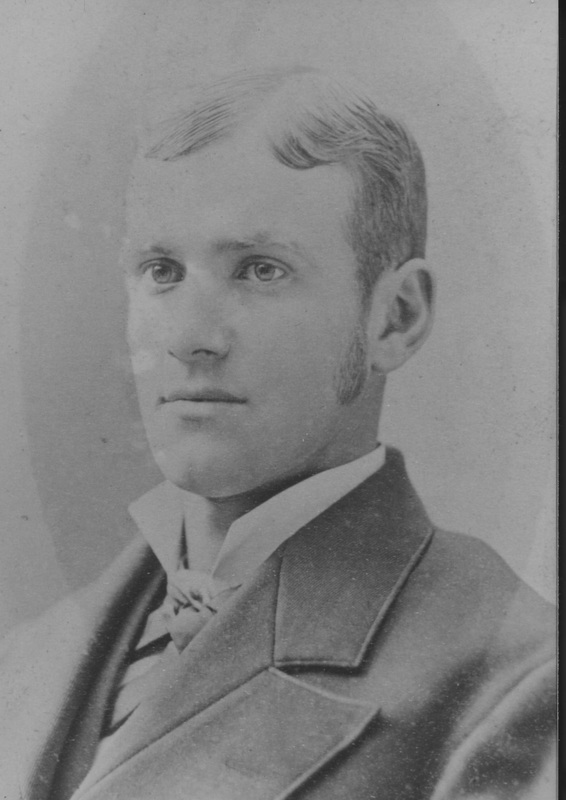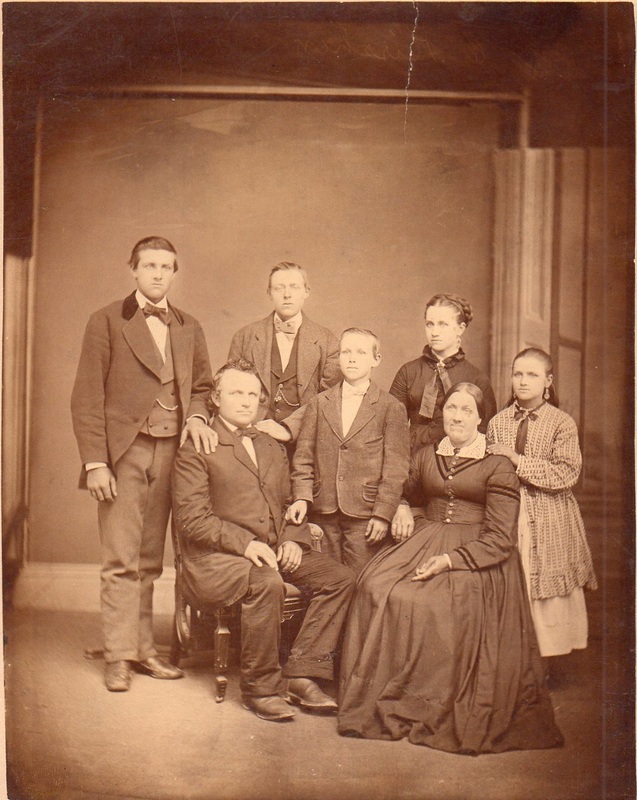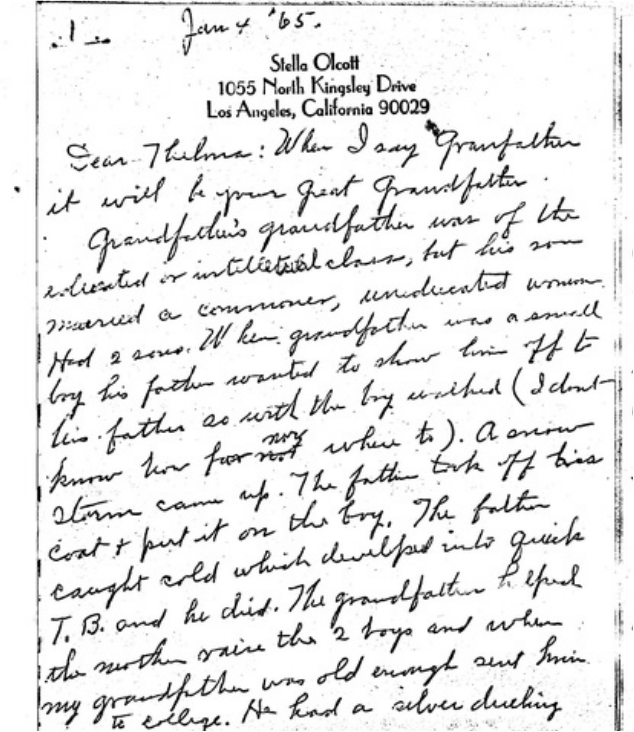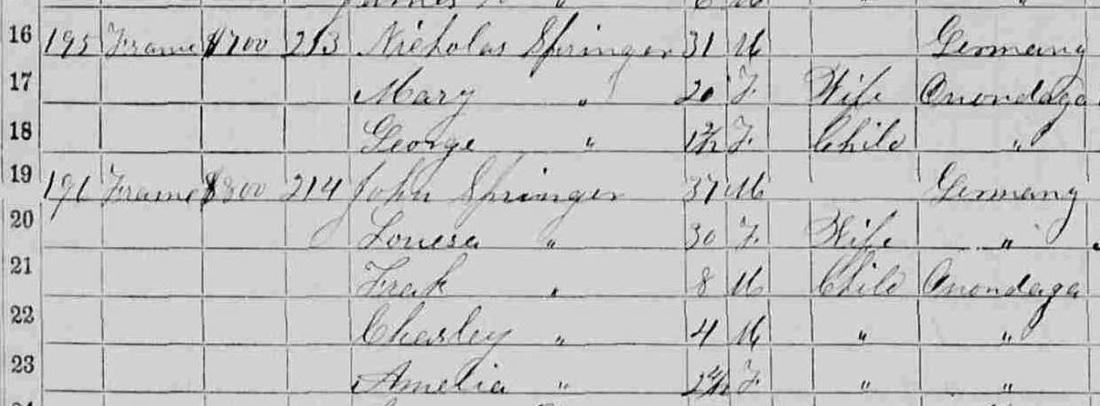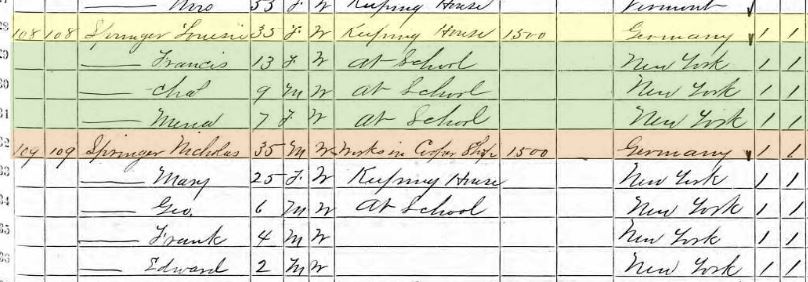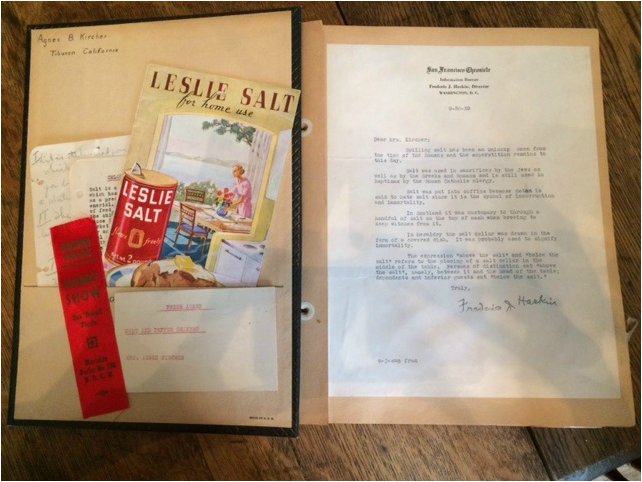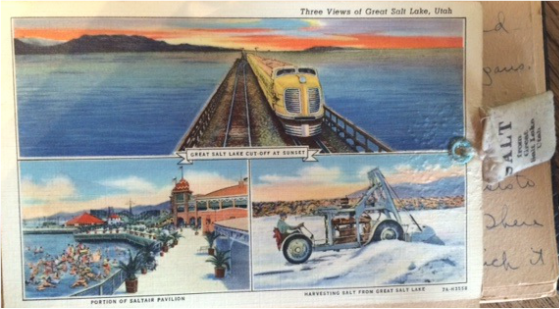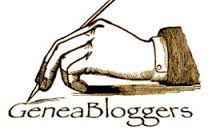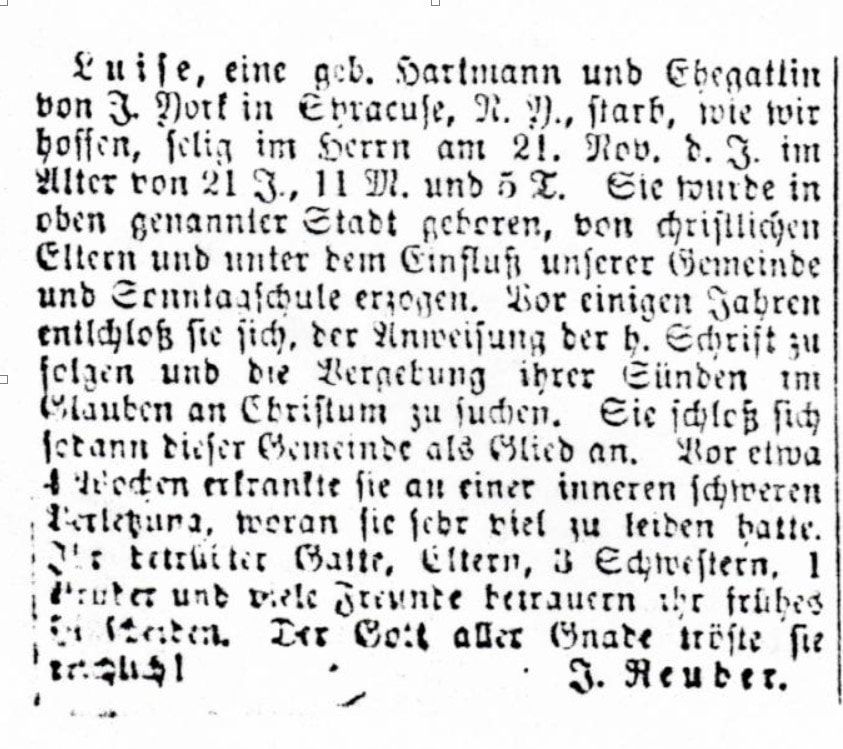 Undated newspaper clipping sent by my father's cousin Thelma VanAlstyne with Kircher and Springer family papers Undated newspaper clipping sent by my father's cousin Thelma VanAlstyne with Kircher and Springer family papers I had the most wonderful experience yesterday at the Virtual Genealogical Association’s conference. I’ve been fortunate in the last five years or so to be selected to present at conferences and to genealogy societies about my favorite topic. I’ve gotten to meet some very nice people. I’ve learned more about my own family as I’ve tried to come up with examples to demonstrate a technique or website. I’ve made a little bit of money to spend on my genealogical addiction. But my favorite part is having a captive audience who might have an answer to one of my own questions. Yesterday I presented “Fraktur und Fremdwörter: Hacks for Reading Foreign Books & Newspapers” at the VGA conference. I had a chance to demonstrate how a hopelessly English-only reader can find an old German fraktur font newspaper article about their ancestor and easily, painlessly, and in only a few minutes, translate it into something they can read. I demonstrated the how-tos for all my favorite newspaper sites. In addition to finding newspaper articles on websites, I think genealogists often have snippets of things in their family papers – perhaps an article pasted into a scrapbook. I have one such article from my Dad’s cousin Thelma with the notation “Translation? Appears it concerns Louise Hartman, Syracuse, N.Y.” I played around with finding a way to scan that article and convert it to OCR. None were terribly effective. In my presentation, I showed my unsuccessful attempts with the caveat, “Sorry folks, on this kind of an item, you just might need to buck up and try to transcribe that article yourself. Unless…. If anyone knows some better way, I’d love to hear about it.” And in that captive audience, Mr. Miles Meyer piped up (in the chat box) and suggested NewOCR.com. From their website: NewOCR is a ”free online OCR (Optical Character Recognition) service, can analyze the text in any image file that you upload, and then convert the text from the image into text that you can easily edit on your computer.” I’ll post again in the next few days about my attempts to transcribe my scrapbook article with my new-found tool. But in the meantime, thank you Miles, thank you Katherine Willson, Dan Earl, Linda Debe and the rest of the people at the Virtual Genealogical Association for putting on a great conference. If you’re interested, check them out. You might be able to be able to catch up on the recordings of the great sessions they have offered at their second virtual conference.
2 Comments
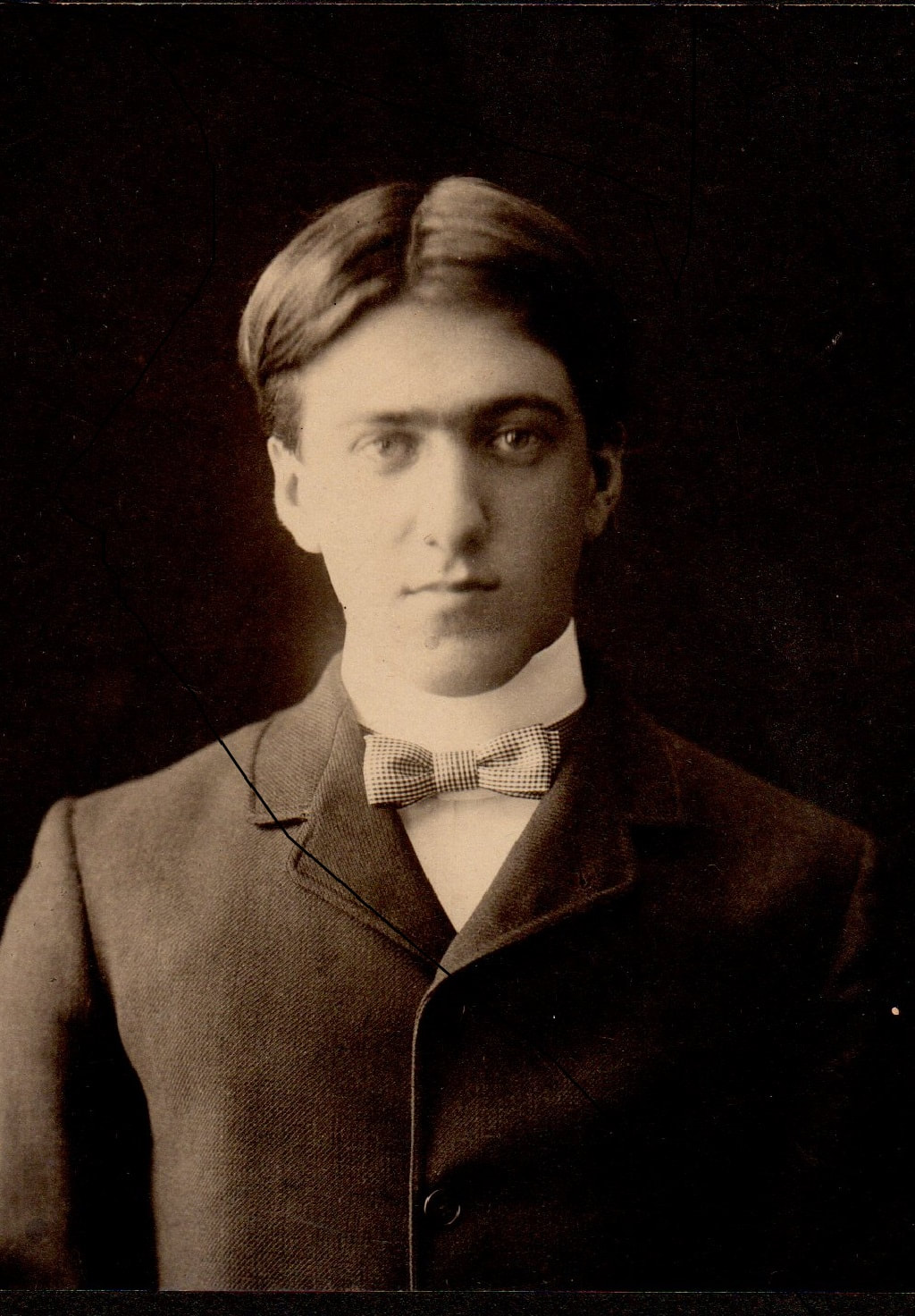 I recently ran across a graduation address, presented at a high school in New York. It captures the thoughts of a young man, on the verge of adulthood, beginning to make sense of the world and his place in it. In a few months he’ll be off to join the freshman class at Dartmouth College in Hanover, New Hampshire. The Prevailing Discontent Probably there is no one here tonight who does not know that the majority of our people are discontented. They are dissatisfied because their business is not profitable enough, their homes are not like those of their friend, their government is not carried on as they would have it, and their neighbors are not as good as they ought to be. In fact, they are dissatisfied with everything and everybody. So general is this feeling that perhaps there is not a person here tonight who is not more or less discontented with his present conditions and surroundings. Would it not be profitable to spend a moment to ascertain the extent and causes of this feeling of unrest and discontent? The American people more than any others are affected by this feeling. In some ways it is a decided advantage to us. It spurs our ambition and prevents us from becoming slothful and indolent by keeping before us the examples of those who surpass us in business success. But is there not danger of carrying this feeling too far? There is such a thing as reasonable discontent as well as reasonable ambition. And at present it seems as if we are being seized by a very unreasonable spirit. On every side we hear the same cry of the tyranny of the rich and the privations of the poor. Why are the people so loudly complaining? Let us see if there are any good reasons for this clamor. What complaint do the different classes of people make? The farmer is constantly complaining because the merchant or some other class of people are getting the best of this world. If he doesn’t make a certain sum of money each year, he thinks he would be better in the city. He does not realize that his table is furnished with the best that the soil can produce. He forgets that about four months in each year he has scarcely anything to do and that he is the most independent of all the different classes of people. He overlooks all this and considers his difficulties only. The inhabitants of the city see the poor farmer come to market with a load of produce for which he receives a few dollars that he has probably earned three or four times over and thinks the man must be getting rich because he raises all he eats and does not have to pay house-rent. But the city man sees the agricultural occupation in a different light than the farmer himself. He thinks the farmer has time to go fishing whenever he doesn’t feel like working because he is his own boss. He doesn’t see the seamy side of the farmer’s life. He never had to crawl around in an onion patch or a strawberry lot like a caterpillar or to take a day or two every little while tending potato bugs. Whenever a city man tries farming he generally goes back in a year or two quite satisfied with city life. The common people read of the money which the Standard Oil Company and Sugar Kings are making but they do not realize that oil and sugar are much cheaper now than before the monopolies were formed. Nearly every person would join a trust if he could. The laborer joins the labor union to control the price of wages and if there was only a possible chance the farmers would build one of the greatest monopolies yet known. The immigrants who are constantly being unloaded at our shores have a great deal to do with the dissatisfaction of our people. They work for less wages and therefore throw our people out of employment which not only makes them poor but gives them time to see someone who is acquiring wealth faster than they are. As a rule these immigrants are not of the best class but are criminals or some who were too lazy or quarrelsome to get a living where they were. They had the idea that if they could but reach America they would live like kings and their wives like queens, and being disappointed in this they straightaway turn anarchist and labor agitators. Our people see their money lavishly spent by the government, for instance in the post office department the government pays to the railroads an average of 8 cents for the transportation of a pound of mail 448 miles. Besides renting 5000 postal cars for $3,600,000 annually which could actually be built for $2,000,000 and would last twenty years. Which the express companies carry milk a distance of 396 miles to New York at 1/6 cent per pound returning the cars free of charge. When the nation’s money is spent at this rate there is some reason for the people to be dissatisfied. Much of this trouble is due the newspapers. Years ago these were scarce and people knew nothing of what the rich were doing. They did not hear of large balls upon which more money is expended than many a farmer sees in a lifetime. They knew only of what themselves and their neighbors possessed, and were satisfied with their condition. Instead of looking at the true causes of this discontent people who are afflicted by this trouble can think of no other one to blame except the president and the prevailing political party. They think the political leaders sympathize with the rich men of the country and the monopolies and by taking advantage of this feeling as far back as many of us can remember, the leaders of the principal parties have succeeded in making the people believe something different each presidential election. Yet no party satisfies us and we are no better off. The American people are today more prosperous than any other nation and although everything is not always as it should be even in America, instead of continually grumbling at our short comings why not spend more time in the enjoyment of the blessings which we already possess. Charles A. Kircher, Oration at the Webster (NY) Union School commencement, 22 June 1897 As you read the commencement address, did thoughts run through your head as to when it might have been written? (The money paid by the express companies to ship milk might have been a giveaway…) From the envelope in which I found these words I knew exactly when and why this address was presented. But the sentiments expressed are strikingly contemporary. With but a few changes, this exact same address might be given at any high school commencement in any city in America in the coming few weeks. I was particularly struck with the author’s impressions of immigrants. Three out of the writer’s four grandparents were living at the time, joined by a step-grandfather on his mother’s side whom he had known his entire life. All four were 1850s-era immigrants, three from Germany and one from Switzerland. All his grandparents had come to America in their 20s. Many of the neighbors of his grandparents’ generation, the farmers in Webster on the eastern edge of Monroe County, were German immigrants. Their accents alone would have been a dead giveaway these people were immigrants. Did Charles see his grandparents and their contemporaries and anarchists and agitators? It’s doubtful. Reading the thoughts of my grandfather reminds me again why I love genealogy so much. Though we may change our clothes or our hairstyles, the human psyche does not change. We as humans share the same hopes and dreams for our children and grandchildren, the same competitiveness against our neighbors and colleagues, the same fear and suspicion of “the other” as has every generation that has come before us. Every bit of history I read seems to reinforce this notion. That’s not to say that individual attitudes might not develop and change as a person grows and sees more of the world. I know by my 18-year-old grandfather’s words what he believed in 1897. I only wish I could pick the brain of the same man in 1950, after all he saw in the ensuing 50 years. I look forward to engaging in such discussions with him (and his grandparents!) some day when I make it to heaven. It just can’t be said enough. Make friends with an archivist. The archivists I know are a special breed – history geeks with a penchant for organizing things and a yen to ferret out obscure and unseen treasures. They have so many resources at their disposal, and their job is to share!
I am writing a family sketch on my great-grandparents, Tom and Mary (Ahern) Bradley for my ProGen study course. The Bradley’s settled in Tiburon, California just as Tom’s employer, the California Northwestern Railroad (later the Northwestern Pacific), moved its terminus there around 1890. Their children and grandchildren grew up in Tiburon. The Bradley family had many connections with this small town on San Francisco Bay. I knew the Belvedere-Tiburon Landmark’s Society had some materials in their archive that my father and some of his siblings had donated, so I checked their catalog online and found a few items pertinent to my research, including a couple of oral histories. I reached out to the archivist, and boy, did I ever get lucky! Dave Gotz emailed some documents and photographs including a transcript of an oral history interview with my great-aunt Miriam “Brownie” Bradley. He’s put a few more things in the mail to me. He’s answering questions that continue to pop into my mind, and now that he knows I exist, he’s even sending me cool materials from the Society’s collection – pictures and newspaper clippings that I didn’t even know existed. But he did. Because he’s an archivist! The best treasure that arrived yesterday was a link to a video file of an oral history interview with my aunts Mary King and Sr. Bertha Kircher, recorded in October 1994. Mary died in 1996 and Bertha in 1999 but for half an hour yesterday I had these two dear women visiting with me in my living room telling me stories of Tiburon a century ago. Seeing them as I so fondly remember them, hearing their voices and unique ways of talking brought back a flood of my own childhood memories. Make friends with an archivist. They’re waiting with a treasure for you! In one of my boxes of miscellaneous family papers I found a few letters. Here is one from my grandfather, Charlie Kircher, to my grandmother, Agnes. Seeing how much he loves her and his children just warms my heart.
In the transcription below, I have adjusted the punctuation somewhat for clarity. Undated[i] D.D.D.D.[ii] Well, here we are again in Sausalito 7:45 after a rather hard day. Olaf’s dad in law died and he wants we to work tomorrow night for him so more trouble. I ate breakfast at Bradleys[iii] this morning and slept home last night. My bed was made when I got home and I don’t know who did it. You ma says she didn’t. Let me know if you get the papers all right and if you want anything sent just say so. I am so glad you can have a little outing and if you need anything to add to your or the kiddie’s pleasure let me know. A funny old bird is the pelican His bill holds more than his belican He can hold in his beak Food enough for a week Although I don’t see how the helican And how are my little honeybunches[iv]? I just love them so much that it makes me most cry to think they are so far away. And are they sleeping outside? I think they would be fine outside with you and Brownie.[v] You’ll let them won’t you honey? And you will tell me all about how they like it and how you cook spag[vi] on that cunning little stove and what time you go to bed and what time you get up. You’ll tell me everything won’t you Dear Darling Duckie Daddle. I just love you honey and when I come up we’ll sit on some big log and spoon and spoon and spoon. You’ll fix it so Brownie will be on watch minding kids when I come up won’t you. It must me just dandy sleeping under those great redwoods isn’t it. And you ought to see how cold it is here. Just awful. Is it warm there? Bye Bye dearie and kiss them all for me. Miller will go to work Sunday morning so I will send the clocks up then. That is if Sunday time is the same as week day and brings him on my boat.[vii] This isn’t good writing or a good letter but it is all big love for you honey. Your loving Husband [i] The letter is undated, but I found another letter written on the same Northwestern Pacific Railroad Co. letterhead, dated June 17, 1914, so I presume this letter might have been written around the same time. I also found an item in the Marin County Tocsin, "County News Condensed", 15 Aug 1914, page 8, col 2 which reads "Mrs. Chas Kircher. and daughter Mary returned Friday from an extended visit to Cazedero." [ii] I believe “D.D.D.D.” stands for “Dear Darling Duckie Daddle.” Later in this letter he uses the full term of endearment. [iii] This is probably Tom and Mary Bradley’s, Agnes’ parents. [iv] The honeybunches would have been their first children, daughters Mary and Bertha. [v] Brownie is Agnes’ younger sister. Though her given name was Miriam, she was known as Brownie. [vi] Not sure what he means by this. Perhaps spaghetti? [vii] By “my boat” I assume he means the ferry he was working as engineer on. Miller is likely a fellow Northwestern Pacific Employee, probably working on a train northward. Since Charlie references the redwoods in his letter, it sounds like Agnes might be For Christmas of 1999, I sent my father a tape recorder and a list of questions. (Was this a gift for him or for me? I’ll let you be the judge of that.) But over the next few months and years, Dad answered the questions and I transcribed his words. I’m periodically posting some of his thoughts.
This section has to do with when the family got a radio. Dad talks about listening to football on the radio, and tracking the game. As someone who grew up in the TV generation, I appreciate the resourcefulness of radio sports fans. “We got a radio ourselves. We had a radio in the living room and we began to listen to things. Football, of course, was important. There were no professional teams. They did not come until 1945, after the war. But we did have colleges. Cal played Stanford. USF played St. Mary’s. St. Mary’s and Santa Clara were always a big deal. And they played on Saturdays and on Sundays. “And we would listen to our radio and put out a chart on the floor of the lined football field. 10 yards., and keep a little button and watch the ball go up and down the field, depending on whether St. Mary’s had made some yards or didn’t make some yards. “Football rules were different in those days, too. There were no center stripes for putting the ball in play. If you… wherever you were tackled, that’s where you put it. If you were tackled three yards from the sidelines, you’d start the next play three yards from the sidelines. If you ran out of bounds, you started the play one yard inbounds. So that sometimes the center was on the end and all the rest of the line was sticking over toward the center of the field. Most of those games were played 6-0, 6-7, or 13-6. You never heard of a game going over 20 points.” Tom Kircher, recorded sometime in 2000. I selected this particular section for a couple of reasons. I presented a session at the Northwest Genealogy Conference last week, “Telling Their Story When They Left No Stories.” One of the points I make is to think about everything in your life – work, clothing, entertainment, sports, religion, politics and more. If you do it or think about it, your ancestors probably did, too. As fall approaches teams both professional and amateur are gearing up for a new season on the gridiron. This memory from my dad speaks to one aspect of his life. Did your ancestors have any interaction with athletics, either as a player or fan? I’m on a research road trip. My husband found the recordings of my dad on his computer and burned some of them to CD for us to listen to in the car. Dad passed away eight years ago, but it sure is a treat to get to hear him tell me a story in his own voice. And I so love my husband for wanting to listen, too. As a bit of an aside, when Dad talks about football in this piece, he mentions St. Mary’s a couple of times. I wish I had followed up with Dad about why St. Mary’s seemed particularly notable. It wasn’t his alma mater. But it may have been his family particularly followed St. Mary’s because his mother’s cousin, Jim “Sid” Ahern, played for the Gaels. I can’t help but wonder if the game against USC was one Dad had listened to and tracked with his grid and button. Go Gaels! My father was a great one for clipping things out of newspapers. Every time I’d go to visit him there’d be a stack, thoughtfully curated. Something for me about genealogy he’d seen in the San Francisco Chronicle, something for my husband about science education from the Wall Street Journal. And speaking of the WSJ, every Friday he’d cut out the crossword puzzles and save them for me. I’d come home with a sheaf of them, and tuck them in a drawer or in my big book of New York Times Crossword puzzles. I’ve done most of them, but occasionally I’ll find an unsolved one and it’s like a little gift from Dad, eight years since his passing. One of the most precious newspaper clippings, however, didn’t come from Dad, it came from Mom. When I was about ten, she was diagnosed with uterine cancer. The surgeon who performed the hysterectomy thought he got it all, but what did doctors really know about cancer in 1970? Apparently not enough, and a few years later, the cancer came back with a vengeance, riddling her body. For two years, she fought the good fight, trying to beat her foe with round after round of chemotherapy, the most unfriendly of allies. At some point Mom knew what was coming. And she knew she would not be there for her husband and children to hold our hands and wipe our tears, to give a hug and tell us we’d be okay, we’d get through it. Mom had experienced this kind of loss before, having buried both her parents and her first husband. I’m sure she remembered how hard those first few days and weeks are, the time you most need the support of your mother or spouse, as you struggle to make sense of the hole in your life. So Mom clipped a poem out of the newspaper and tucked it in her purse for Dad to find, something she thought might give voice to the words she would not be able to say. Shortly after her death on April 3, 1977, my dad found the clipping, and made a lovely tribute to Mom of it, a framed piece with her picture and the poem. I think all of my siblings still have our copies framed in our homes. I treasure mine. Recently I ran across a box of Dad’s things, and in it was that original clipping Mom tore out of the paper, jaggedy edges and all. I’ve often wondered - just when did Mom see that poem and know it would be needed? Days before her death? Weeks? Months? As I sit her in 2016, 39 years after she died, and just a few days before what would be her 94th birthday, the detective in me came out. I spent some time with the clipping, with the few words of the editorial on the back side of the scrap of yellowing paper, and with a digital newspaper database, searching for the issue. I found my answer. Three months. She knew, even if we didn’t. December 30, 1976, Mom tore out the clipping, knowing that the moment so eloquently described by Emily Dickinson would come to pass in her own home before too long. And she left us something to help us get through it. The bustle in a house The morning after death Is the solemnest of industries Enacted upon earth – The sweeping up the heart, And putting love away We shall not want to use again Until eternity.[i] [i] “The Bustle in a House” by Emily Dickinson 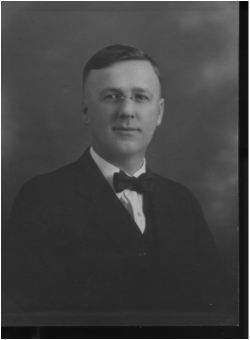 Irving Kircher Irving Kircher Readers may notice my name, Mary Kircher Roddy, and (correctly) infer that Kircher is my maiden name. For most of my adult life, I used Mary E. (for Elizabeth) Roddy as my “professional” name. I entered graduate school to earn a Master’s degree in accounting under my maiden name, married part-way into the program, and for my entire life as a Certified Public Accountant I’ve been known as Mary E Roddy. But as I began to work professionally as a genealogist, author, and speaker, putting the Kircher back in my name became important to me, part of my oh-not-so-secret hope that a researcher or relative might make a connection to that family name and “bag” me! I have often teased that if I had a bigger business card, I’d call myself Mary Kircher Springer Freuhauf Hartman Altoff Schoenemann Bradley Rugh Keppel Yearyan Fooselman Mechling Merkel Ahern Toumey Walsh Graham Keenan Brown Mansperger Shafer Raiser Long Gillotte McGrew McCrae Neusche Erhardt Hardy Green Gee Beauford Bruce Andrews Neville Drury Fields Devlin et al Roddy. But as another Mary once sang, “That’s going a bit too far don’t you think?”[1] Indubitably… so I’ll stick with the plain old Mary Kircher Roddy and hope for the best. Just this week my plan to get “bagged” by a relative bore fruit! A woman on facebook sent me a friend request – she’s a genealogist, saw the Kircher in my name and recognized it from her family research and reached out. Hopefully we’ll be able to connect our families. So in honor of my Kircher’s I’ll post another Kircher story today., the transcription of “The Kircher Family Visits Worlds Fair, Fall 1893”[2] by Irving Kircher.[3] It was not easy for Father[4] to leave his farm for a period of seven or eight days. There were many things that needed daily attention such as milking cows, feeding horses, cattle, pigs and chickens. However, Fall was the best time to go as many of the crops were already harvested and the weeds were well under control. Mother[5] was against the adventure but Charles[6] and Irving were all for it; the babies Helen and Stella[7] were too you to express an opinion. Father was eager to make the trip as he had two cousins living in Chicago, one Julius who was employed by a couple of Swift boys who had a slaughter house near his home,[8] the other cousin, Albert[9] who was a barber in the neighborhood of 5232 May St. Both of these cousins had visited in Webster and now was a good time to kill two birds with one stone – see the fair and visit relatives. Now it was time to make plans. Who shall we get to look after the chores and what will we do with the babies – Helen and Stella? Hiram Jennings, a Christian man and a lay preacher and part time farmer would be willing to help if he could find the time. John Wolf, Geo. Schremer, other neighbors, were experienced farmers who might be able to watch over the live stock. Lon Thayer and Cider ben were good fellows and had little to do. Lon had a cider mill which had not yet opened for the season, and Cider Ben never had a job, and father was afraid to place too much responsibility with him as we had a bull in the barn yard and the horses were treacherous, one would bit, another would crowd you in his stall, another would try to step on your toes – all of them were kickers. After much consideration Lon Thayer was chosen to take over ,and for his work he was to receive the milk he took away from the cows. Grandma and Grandpa Bowman[10] who lived over on the track offered to take care of the girls during our absence. We children all loved our grandparents and it was a great pleasure to visit them. The girls were delighted to vacation over there. Grandpa, a jolly old man was a blacksmith. He nailed shoes on horses and put metal tires on wagon wheels. Pa said he never saved any money because he spent so much on groceries. Grandpa loved roast beef and he was willing to pay 15 cents a pound for his meat – a good five pound roast would cost 75 cents and that was what kept him broke. Charles Jr.[11] was a big 14 year old boy and was thinking of entering High School. High School Prin[cipal] E. D. Webb told father it was a must. After a debate of an hour or so father finally consented to pay the enrollment tuition and allow Charles to start High School work after election day which usually came after Nov 1. We are now ready for the train ride to Chicago. Our baggage which was small and rolled in bundles was made ready, each carrying at least one bundle. It was morning when we boarded the R.W & O[12] limited to Rochester. The ride was pleasant and we arrived safely at Rochester some time before noon. The usual worries that go with travels were with us. Did we forget anything? No, nothing was left undone, but still mother couldn’t remember if she locked the kitchen door. “Where is the key if we locked the door,” said Charles Jr. After some hard thinking mother did rember of making a final stop at the little house in the back and on her return as she passed by the wood pile she overturned a large wood block and tucked the key under it. Father was a man who could find at least one thing to worry about at any moment. When will we get to Chicago? Will some one meet us, where will we go and what will we do, were some of the thoughts that flashed through his mind as we hurriedly entered the west bound NY Central coach. The train was off and w were whizzing along at 40 miles per hour. Tickets please, shouted the conductor. Father opens his money bag in search of the tickets. Fifty silver dollars could make a lot of trouble in a money bag, however two tickets did pop up and dad said there they are. Conductor – What, only 2 tickets for the four of you. How old are these boys? Pointing at me dad said he’s eleven. What about the other boy? He’s older. How old? 14 I think. Conductor’s reply – children under 12 go for free – over 12 must pay ½ fare. I don’t know what the outcome but there was an argument each time the conductor came along to take up tickets and call the name of the next station. A new conductor came on duty after a short time. Dad saw him coming down the aisle and shouted to Charles – make yourself look small, crouch down – it worked. There was confusion, noise, running and shouting as the train pulled up to the Grand Central station in Chicago. We hurried outside and enjoyed a breath of fresh air. Dad was right when he worried about what to do next when we arrived in Chicago. 5232 May Street that’s the number we are looking for. Cousin Julius lives there ant that’s where we’re going. We start looking for May street but only for a short time; father found it in less than 10 minutes. We were lucky and happy to know that we were so near our destination. But where is 5232? We shall walk and find it; it can’t be far away. One thing we didn’t know was the length of a city block. We walked a block or two and thought we were near our destination. A horse drawn street car passed us. We didn’t board it as we thought our journey was a short one. This was a mistake. It took us 3 hours of walking before we found 5232. The ride on the train meant more to me than the Exposition. The outstanding features at the Fair were the Ferris Wheel which took us up to a height of 100 feet or more. The view from the wheel was wonderful. The statues on the grounds and in the buildings always drew comments from the older people. The men thought the art specimens were nice and the women thought they were naughty. Our generation would have no comment.[13] Question – what did we take home with us? Answer – the satisfaction of a feeling that there was no place like home in Webster. Irving” Researcher’s notes:
Dear Reader - please scroll down for more pictures. I couldn't figure how to integrate into the text [1] “Supercalifragilisticexpialidocious” Robert B and Richard M Sherman, from the musical, Mary Poppins [2] The transcription in this blog post is of a photocopy of something written by Irving Kircher. I do not know anything about where the original is located or the circumstances under which it was written. There is no date written anywhere I can find on the pages. The penmanship in the document looks like that of an adult. The document was included in the papers in a file kept by my father labeled “Kircher Genealogy” [3] Irving Kircher, born 21 August 1882, was the second child of Charles Conrad Kircher and Frances Abelone Springer. His adult life was spent in LaCrosse, Wisconsin where he was a school principal [4] Charles Conrad Kircher, born 21 January 1852, Rochester, Monroe, New York [5] Frances Abelone Springer, born 13 February 1857 Liverpool, Onondaga, New York. Married Charles Conrad Kircher 12 March 1878. [6] Charles Jr. is my grandfather, Charles Arthur Kircher, son of Charles and Frances, born 25 April 1879 in Webster, Monroe, New York and died 8 March 1952 in Marin County, California. [7] Helen and Stella are the two daughters of Charles and Frances. Helen was born 8 March 1888 and Stella was born 18 November 1889. [8] I believe this is Julius Kircher, son of Julius Kircher and Sophia (last name unknown.) Julius Jr was born circa 1857 in Monroe County, New York, lived in Illinois from the mid-1880s to sometime in the 1910s, and died in Los Angeles, California 14 February 1922. Julius Kircher Sr., born circa 1824 in Prussia/Germany, died 16 August 1863, is the brother of Carl Conrad Friedrich Kircher, my great-great grandfather. [9] I believe this is Albert Kircher, also son of Julius and Sophia, born about 1857 or 1858 in Monroe County, New York. However, I find Albert Kircher, barber, appearing in the city directories in Elmira, Chemung, New York from about 1882 to 1897, so I am not clear about Irving’s assertion that Albert was living in the Chicago area. [10] Grandma Bowman refers to Louisa Caroline Hartman Springer Bowman, mother of Frances Abelone Springer. Grandma Bowman is Henry Bowman/Bauman, who married Louisa about 1875 after the death of her first husband, Johannes Springer 3 October 1867. [11] Charles Jr. is my grandfather, Charles Arthur Kircher, born 25 April 1879 in Webster, Monroe, New York and died 8 March 1952 in Marin County, California. [12] Rome, Watertown & Ogdensburg.Railroad [13] Editorial comment – seems the more things change, the more they stay the same… I recently went through a file which came from my dad’s house, labeled “Kircher Genealogy.” In it was a photo copy of the letter I have transcribed below, written on the stationery of Stella Olcott as shown in my transcription. But it seems from other papers in the file, that there are two related letters. One is a type-written letter from Thelma Van Alsytne to “Dear Aunt Agnes,” dated February 22, 1965. The second paragraph of the typed letter says “One of the things I have been wanting to do is to send you a copy of a letter from Stella Olcott that came to us in January. I’m just wondering if you may have asked her about our ancestors. If so, perhaps she meant to write this information to you…” The second letter which is undated, appears to be written in the hand of Stella Olcott to “Dear Agnes” in which she says “Thelma Van Alstyne wrote me that she sent you a copy of the letter I wrote her, in answer to her request to know something about our grandparents…” I infer from this that my grandmother, Agnes Bradley Kircher, might have written to Stella Olcott, requesting information on the Kircher family, Agnes’ in-laws, and perhaps Stella got mixed up in her correspondence and thought Thelma was the one asking about the family. Regardless of who asked the questions, I am glad I have the snippets of family history presented below. I have transcribed the letter as written. The footnotes are my educated guesses, based on my research, as to who Stella is referring to. After the completion of my transcription, I have written some notes and ideas for further research, should any Kircher or Frühauf descendant wish to follow up. Jan 4, [19]65 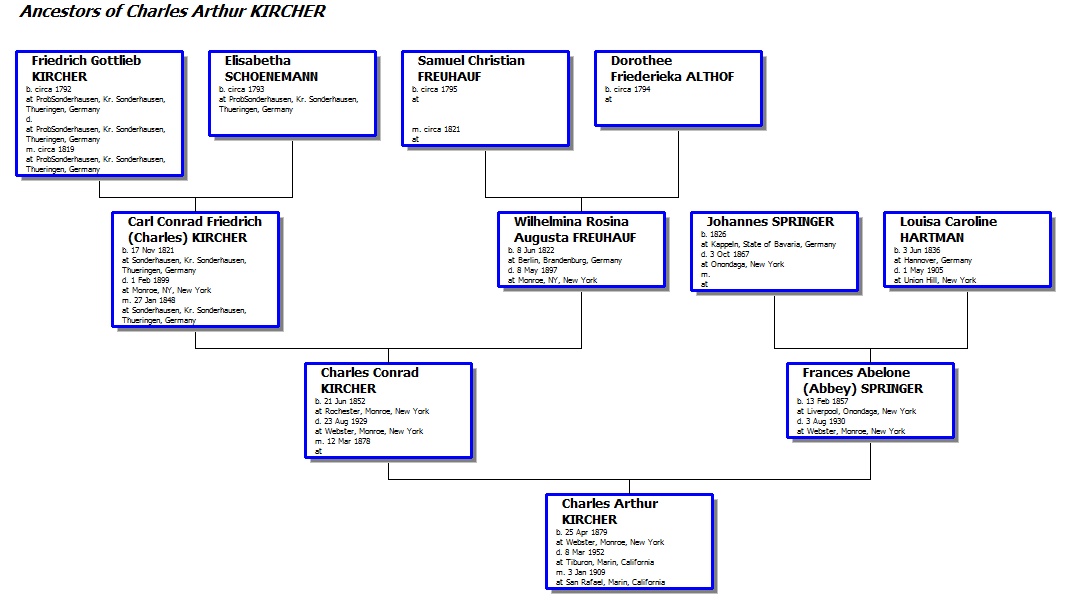 Ancestral chart of my grandfather, Charles Arthur Kircher. For reference, Stella Olcott is the daughter of Anna Kircher Olcott, older sister of Charles Conrad Kircher. Thelma is the daughter of Stella Mae Kircher Wooster, sister of Charles Arthur Kircher Ancestral chart of my grandfather, Charles Arthur Kircher. For reference, Stella Olcott is the daughter of Anna Kircher Olcott, older sister of Charles Conrad Kircher. Thelma is the daughter of Stella Mae Kircher Wooster, sister of Charles Arthur Kircher Dear Thelma[2]: When I say Grandfather[3] it will be your Great Grandfather. Grandfather’s grandfather[4] was of the educated or intellectual class, but his son[5] married a commoner, uneducated woman. Had 2 sons. When grandfather was a small boy his father wanted to show him off to his father so with the boy walked (I don’t know how far nor where to). A snow storm came up. The father took off his coat and put it on the boy. The father caught cold which developed into quick T.B. and he died. The grandfather helped the mother raise the 2 boys and when my grandfather was old enough sent him to college. He had a silver dueling sword. A college relic. It was given to Uncle Gustave.[6] He gave it to your grandfather[7] I think. [Aunt Helen doesn’t remember having seen it, though. T.][8] During that 1st year in college my grandfather’s mother[9] married a commoner and maybe Grandfather didn’t do too well in college, however being a good reader, when he visited us he brought a history of one of the French-German Wars to read. However his grandfather was disgusted & did nothing more for the boys. Some way, Grandfather became a dressmaker and his brother[10] a tailor. Grandmother[11] was a commoner and worked as a servant for Emperor W’s mother. She was born in Berlin. When she and Grandfather married they lived in Hamburg. Mother[12] told me these things so long ago I am not sure of them. From here on I am sure. Both Grandfather & his brother had some rentals. One of the many French-German wars was in the air. GrandF & his brother & the husbands of two of Grandmother’s sisters discussed going to America. Those 4 men and some (I don’t know how many) others decided to go. They got their money into cash, bought their tickets, Grandmother had a baby[13]. Grandfather knew some people who had gone to Rochester, being (at least thinking) he was the boss of the group he said they would go to Rochester, a commercial city. [my pen has gone dead). They got the tickets were leaving at Hamburg. The day they were leaving government men came to draft any man over 21. The men gave the tickets to the wives, told them to get on the boat and that they would not show up until the boat had left Eng. A sail boat they were on the water 6 weeks. Grandmother’s baby died & was buried at sea. When they moved to the farm in walking distance from Lake Ontario[14] Grandmother would fix picnic lunches for them, but she never went to the lake. While they were on the boat some of the men were farmers & had heard of the fine farm land in So. Illinois & decided to go there. Grandmother’s 2 brothers-in-laws were among these farmers. So when they reached (I have got a pen) N.Y. the farmers bought tickets to S. Ill. Grandfather said to Grandmother “You will never write to them.” She never did. Grandmother’s name was Fruauf (? sp) means Early up. Mother did not know what the brother-in-law’s names were. Grandfather & his brother bought apt houses. Did well with their tailoring. But grandfather, having drunk beer in Germany, got to drinking hard liquor. When sewing machines were invented, they either had to buy a sewing machine or get land. Neither knew a hoe from a spade, but Grandmother wanted to get Grandfather away from the drink, so told Mother to tell her Father to get a farm. Mother said she wouldn’t do it. She didn’t want to be a (I have forgotten what she called farm people, not hillbillies, but something like that). But in Germany anyone who owned land was some body. Having no idea how to pick land, Uncle Chas & Julius said he got the stoniest 80 in NY state. Then the Civil war came on. Grandfather had left Ger. to escape war, he wasn’t going to fight in U.S.A. So he paid $300.00 for a substitute. It was then they knew what it was to be hungry. From there on I guess you know it as well as I do. If there are any other questions ask them. Oh yea, I guess I’ll tell one more thing. When they moved to the farm Grandfather got to gambling, then some Lutherans had a revival in the school house. Grandfather went joined the church, never drank nor gambled after that, went to church every Sunday & Grandmother taught a S.S.[15] class. The whole service was in German. When Grandfather (after Grandmother died) came to Kansas for a winter my father said “Stella wouldn’t you like to take Grandfather to Vassar (about 3 miles north of Lyndon) there are 2 German churches there.” “Oh yes” said I. On the way I asked Grandfather which church he wanted to go to. “Oh it doesn’t make any difference” said Grandfather. “In one the reacher wares a white tie, in the other he wears a black tie.” Yes that is all. Will answer the rest of the Xmas card next Xmas. Love, Stella Olcott My hand has a little arthritis that’s why my writing is so scratchie. This is the end of the transcription. Below are some brief notes about further research: Also in the file is a transcription of a record, written in German, translated as follows: “According to the statement of the baptismal records in the Sophien Church, a daughter was born to the shoemaker Mr. Samuel Christian Frühauf by his wife Dorothee Friederike nee Althof on the eigth of June in the year One thousand eight hundered twenty-two at 4 a.m. She received holy baptism on the 23rd of August and the names Wilhelmine Rosine Auguste. Baptismal witnesses were: 1. Shead? Shittag 2. Frau Bangerman 3. ??? Petzoldt This is hereby certified to be authentic and lawful. Berlin the 27th of January 1848 and the first preacher in the Sophien Church” I have begun to research in some German church records I found on FamilySearch.org and found an index record for a christening on 8 May 1825 at the Sophien Church in Berlin for Marie Amalie Freuhauf, daughter of Christian Samuel Freuhauf and Marie Dorothee Althoff. https://familysearch.org/pal:/MM9.1.1/NF7J-329?from=lynx1 Another record from what appears to be the same church is for a christening on 25 January 1824 for Johann Samuel Freuhauf, son of Joh. Christian Freuhauf and Dorothea Friedericke Althoff https://familysearch.org/pal:/MM9.1.1/NF7J-N82?from=lynx1 I do not have the original records, but it may be that these people are siblings of my great-great grandmother, Wilhelmine Rosine Auguste Frühauf, and might be “Grandmother’s 2 brothers-in-law” (or the sister who is married to the brother-in-law) who went to farm in Southern Illinois. I think it would be worthwhile to search for a marriage record for Marie Amalie Freuhauf and see if she and her husband could be located in southern Illinois in the 1850s or 1860s and to see if Johann Samuel Freuhauf might also have become a farmer in Illinois. I would also suggest searching in family trees on Ancestry and FamilySearch to try to locate researchers looking at Freuhauf family members. And DNA testing may prove fruitful in finding additional family members. [1] Stella Olcott, born 9 August 1881, is the daughter of Anna Kircher and Elisha Olcott. [2] Thelma is Thelma May Wooster VanAlstyne. Her mother was Stella Mae Kircher Wooster. Stella Wooster was the daughter of Charles Conrad Kircher, born 21 Jun 1852, and Frances Abelone Springer (my great-grandparents.) Stella Wooster is the youngest sister of my grandfather, Charles Arthur Kircher’s. [3] The “Grandfather” Stella Olcott refers to in this letter is her maternal grandfather, Carl Conrad Friedrich “Charles” Kircher, born 17 Nov 1821 in Germany and died 1 February 1899 in Webster, Monroe, New York [4] I think this is Fredrich Kircher’s father (see footnote 5 below) but I have no idea what his name is. [5] I believe this son must be the father of Carl Conrad Friedrich “Charles” Kircher (CCFK). CCFK’s father was Friedrich, born circa 1792 in Germany (ProbSonderhausen, Kr. Sonderhausen, Thueringen, Germany. I have a baptismal record which states "On the seventeenth of November one thousand eight hundred and twenty-one --- 17th November 1821 --- a son was born to the ??? Friedrich Gottlieb Kircher by his wife Elisabetha nee Schonemann. He was baptized on the 9th of December and was named Carl Conrad Friedrich. That this corresponds with the church-book is dutifully witnessed. Sondershausen the 18th January 1848 [6] I believe this is Gustave Kircher, born 17 Nov 1860 in Monroe County, New York and died 24 March 1935 in Los Angeles, California. Gustave was the son of CCFK and his wife, Wilhelmina Rosina Augusta Freuhauf Kircher. [7] This would be Charles Conrad Kircher, “Uncle Gustave’s” brother [8] The note in brackets appears to be in a different hand, and given the “T” at the end of it, I think Thelma wrote this note. The Aunt Helen she refers to is Helen Louisa Kircher Hilfiker, daughter of Charles Conrad Kircher and Frances Abelone Springer Kircher. [9] This woman would be the wife of Freidrich Gottlieb Kircher. Her name was Elisabetha Schönemann [10] “Grandfather’s” brother is Julius Kircher, born circa 1824 in Germany/Prussia and died 16 August 1863 in Rochester, Monroe, New York [11] “Grandmother” is Wilhelmine Rosine Auguste Frühauf, born 8 June 1822, daughter of the shoemaker Mr. Samuel Christian Frühauf [12] Anna Kircher Olcott [13] This child was born 6 April 1848 in Mittenwalde near Berlin. She received holy baptism by deacon Federmann of St. Moritz Church and given the name Agnes Emma Laura [14] I believe this refers to the farm on Basket Street near Webster, Monroe, New York [15] I presume this refers to a Sunday School class 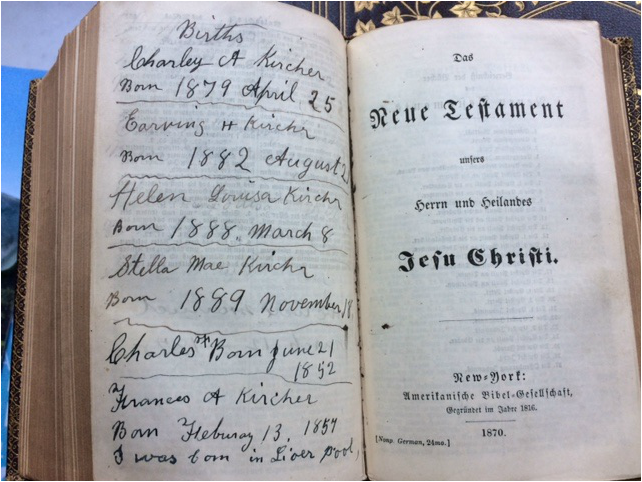 Page from the bible given to Frances Springer Kircher by her mother Page from the bible given to Frances Springer Kircher by her mother When you’re looking for someone on the census, and you can’t find them, but you know they MUST be there, be willing to expand your search a little. You can expand the age range. You can expand the geographic parameters. And maybe, when all else fails, try to expand your gender possibilities. Such was how I finally found my great-grandmother, Frances Springer. I was pretty sure the family had to be in Onondaga County. The record in her bible said that my great-grandmother, Frances Abelone Springer was born in Liverpool, New York on 13 February, 1857.[1] Her father’s Civil War draft registration from June, 1863 indicates he was living in Salina, Onondaga, New York. The family should be pretty easy to find on the 1860 census, right? 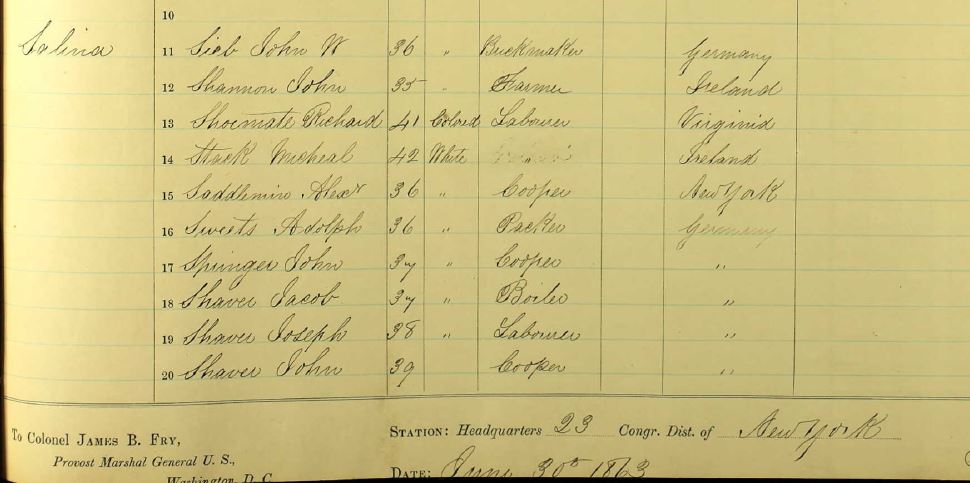 Civil War Draft Registration, Salina, Onondaga, New York for John Springer Civil War Draft Registration, Salina, Onondaga, New York for John Springer Part of my problem might have been the names and the date of death for Johannes. The family genealogy done by a distant cousin (not sourced, of course) showed my great-great grandfather as Johannes Springer, born 1835, died Oct 3, 187_ at age 42, married to Louisa Caroline Hartman, born June 3, 1836. And I think at one time I had heard that my great-great grandmother was known as Caroline (but in retrospect, I think I must have been under a wrong impression. My bad.) In any event I looked for Johannes and Louisa and their daughter, Frances, in the 1860 and 1870 census, and try as I might I couldn’t come up with the family. But then I found the Civil War registration for John Springer[2], and I knew they had to be somewhere in Onondaga County, so I expanded my search. Often when I can’t find a family in the census under the parents’ details, I look for the children. There are several reasons this trick works for me. For example, an adult of age 30-ish could “look” somewhere between 25 and 40, a 15 year spread. But a three year old child is not likely to be listed as age 1 or age 10. She might show up as age 2, 3, 4 or maybe 5, a considerably more precise age than her parents. Place of birth is easier to pin down, as well. Perhaps the parents were born in “Germany.” But the census might show Bavaria, Hannover, Germany,… who knows. But with the child who is only 2 or 3 years old, she is likely - not certainly, but likely - to be living near where she was born, and appear on the census with a birthplace near where she was living. So if I know my great-grandmother was born in Liverpool, NY in 1857, she’s probably going to show up as born in NY on the 1860 census. So I begin to look for a 3-year-old girl, Frances Springer and there are none to be found in Onondaga. OK, maybe try the middle name, Abelone. Maybe she’s Abby or some variant. Nope. But… but… but, they HAVE to be there (says the genealogist, stamping her foot!) So… maybe Johannes is something else… hmmmm…. John? And could I let go of the “Caroline” and try Louisa? In 1860 I did find a family, John and Louisa, both born in Germany, and their 2-year-old son, Frank.[3] A son. Not my family. Then I checked the 1865 New York state census. John and Louisa Springer, both born in Germany, and now three children appear – sons, Frank and Charley and daughter, Amelia.[4] My great-grandmother had a brother, Charles, and a sister, Amelia. This is looking more like my family, but my great-grandmother is still a boy. Interestingly, the household enumerated immediately prior to John and Louisa on the 1865 census is headed by a Nicholas Springer, born in Germany. And finally, on the 1870 census, Louisie Springer is the head of household (that family genealogy I talked about earlier was wrong – John died in 1864)[5] with her three children. Nicholas Springer, again, is right next to her on the census. And her children are now two daughters, Francis and Mina (Amelia) and only one son, Charles.[6] Why all the confusion? Maybe my great-great grandmother told the census taker her child’s name was Franke in her German accent, and the enumerators assumed Frank must be a boy. I don’t know… but I’m glad she finally turned out to be a girl, because otherwise, I wouldn’t be here to tell this tale. So, when you’re stuck and can’t find that family on the census… Hey, babe. Take a walk on the wild side. Maybe that she was a he. On the census, anyway. [1] Die Bibel, gift to Frances Springer from her mother, December 1872, in possession of Mary Kircher Roddy, Seattle, Washington
[2] National Archives and Records Administration (NARA); Consolidated Lists of Civil War Draft Registration Records (Provost Marshall General’s Bureau; Consolidated Enrollment Lists, 1863-1865); Record group: 110, Records of the Provost Marshal General’s Bureau (Civil War); Collecioin Name: Consolidated Enrollment Lists, 1863-1865 (Civil War Union Draft Records); ARC Identifier: 4213514; Archive Volume Number: 3 of 3. Record for John Springer, 23rd Congressional District, Salina, Onondaga, New York. Accesses from Ancestry.com [3] Year: 1860; Census Place: Salina, Onondaga, New York; Roll: M653_829; Page: 99; Image: 18; Family History Library Film: 803829, household of John Springer, family #106 [4] "New York State Census, 1865," database with images, FamilySearch (https://familysearch.org/ark:/61903/1:1:QVNJ-NRGX : accessed 13 July 2016), John Springer, District 01, Salina, Onondaga, New York, United States; citing source p. 29, line 19, household ID 214, county clerk, board of supervisors and surrogate court offices from various counties. Utica and East Hampton Public Libraries, New York; FHL microfilm 860,900. [5] FindAGrave memorial for John Sprenger, date of death 3 October 1864, Find A Grave Memorial# 23987756. [6] Year: 1870; Census Place: Salina, Onondaga, New York; Roll: M593_1061; Page: 622A; Image: 81217; Family History Library Film: 552560, household 108 My grandmother, Agnes Bradley Kircher, was a collector. She collected hatpin holders. She collected napkin rings. She collected teacups. Many people collect salt shakers, but I don’t have any evidence that Agnes did. She did, however, collect something salty. One of her most unusual collections in contained in a simple scrapbook. For some unknown reason, Grandma Kircher collected articles and writings about salt. The first page of the scrapbook is a letter from Fredric J Haskin, director of the Information Bureau of the San Francisco Chronicle, with offices in Washington, D.C., dated September 30, 1939 in which he puts forth six unusual facts about salt. Was Mr. Haskin’s letter a response to an inquiry from Grandma Kircher? I have no idea, but through this letter I’ve learned, among other things, that “Salt was put into coffins because Satan is said to hate salt since it is the symbol of incorruption and immortality,” and “In heraldry the salt cellar was drawn in in the form of a covered dish. It was probably used to signify immortality.” More pages of the scrapbook hold a hand-copied recipe from The White House Cookbook from 1898 for Salt-Rising Bread, numerous newspaper clippings including “Does Salt Determine the Complexion?”[i] “Salt serves Japanese as War Weapon,”[ii] and a bit of celebrity news about why Gloria Swanson eschews salt[iii] and why Errol Flynn picks up every grain of any salt he happens to spill because apparently a handful of salt has saved his life on many occasions.[iv] But wait! There’s more – an article about the Exposition Flyer crossing the Bonneville Salt Flats[v] and a recipe for the “’Nightmare Special’ – in a big bowl, first a bottom layer of French fried potatoes. On top of that a scoop of chocolate ice cream, a slice of fresh pineapple, a blob of whipped cream and a cherry. Finally a generous sprinkling of ketchup, pepper and salt.”[vi] There are six pages in Agnes’ own hand about salt, and several pages of dictionary definitions and Bible verses about the briny condiment. Pasted in the book is a picture postcard with three illustrations of Great Salt Lake Utah, complete with the attached mini cloth bag of salt from the lake. What prompted this collection of salt-related items is beyond me, but apparently someone besides Grandma Kircher was impressed with the collection – tucked between the pages is a red ribbon “Second Prize – Hobby Show, San Rafael Fiesta, Marinita Parlor No. 198, N.D.G.W.”[vii] But I gotta ask –salt???? What about the genealogy scrapbook you might have spent your time on? Ah, well. Congratulations, you winner, you! [Tiny follow-up. I wrote this blog post and looked through the scrapbook to find a page to illustrate the blog post. And lo and behold, tucked inside a pocket in the front cover was a card “Prize Award – Salt and Pepper Shakers, Mrs. Agnes Kircher” Maybe she did collect them after all] [i] Clipping dated 1939 by American Weekly, Inc. [ii] Article dated Monday, October 17, 1938 from an unnamed newspaper [iii] San Francisco Call-Bulletin, Thursday, September 28, 1939 [iv] No identification as to date or source of this article [v] San Francisco chronicle, Sunday, September 10, 1939 [vi] From some publication identified as “Pathfinder”, Sept. 16, 1939 [vii] N.D.G.W. stands for Native Daughters of the Golden West. For more information see http://www.ndgw.org/ Researcher’s note - maybe something to follow up on here – might the Marinita Parlor 198 of N.D.G.W. have some paperwork on my grandmother? I’ve sent off an email. I’ll keep you posted if anything interesting comes from it. |
AuthorMary Kircher Roddy is a genealogist, writer and lecturer, always looking for the story. Her blog is a combination of the stories she has found and the tools she used to find them. Archives
April 2021
Categories
All
|
